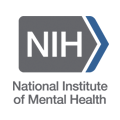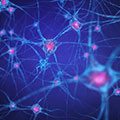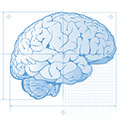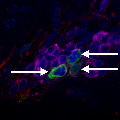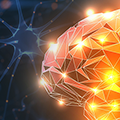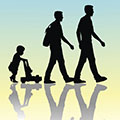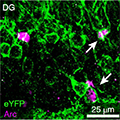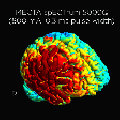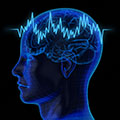Science Updates from 2020
- Using Mobile Technology to Improve Care for Teens with Depression
-
In a project funded by the NIMH Small Business Technology Transfer program, researchers are investigating whether mobile technology can be used to create a passive monitoring system that can predict teens’ depressive symptoms and improve the quality of their care.
- Testing and Refining Biomarkers to Support Intervention Research for Children with Autism
-
NIMH, along with other NIH Institutes, is supporting the ABC-CT project, a multisite study that aims to test and refine biomarkers that can be used as objective measures of social impairment for children with autism in clinical trials, leading to more predictive and personalized treatment.
- NIMH Awards Funding for Research on Preventing Firearm Injury and Mortality
-
Suicide attempts by firearm are especially dangerous, with as many as 9 out of 10 attempts resulting in death. NIMH is supporting three projects focused on preventing and reducing firearm injury and mortality to help address the critical need for more research in this area.
- NIMH’s Carlos Zarate Jr., M.D., Elected to National Academy of Medicine
-
Carlos Zarate Jr., M.D., chief of the Experimental Therapeutics and Pathophysiology Branch within the NIMH Intramural Research Program, has been elected to the National Academy of Medicine.
- NIH-funded Study Sheds Light on Abnormal Neural Function in Rare Genetic Disorder
-
A genetic study has identified neuronal abnormalities in the electrical activity of cortical cells derived from people with a rare genetic disorder called 22q11.2 deletion syndrome.
- Brief Suicide Prevention Interventions in Acute Care Settings May Reduce Subsequent Suicide Attempts
-
A research project supported by NIMH analyzed multiple studies to determine the effectiveness of brief suicide prevention interventions in acute care settings.
- NIMH Part of Collaborative Effort to Advance Early Intervention for Individuals at Risk of Developing Schizophrenia
-
NIMH has joined with other NIH Institutes in launching an new Accelerating Medicines Partnership focused on advancing the development of better ways to identify and treat those at clinical high risk for psychosis.
- Media Advisory: NIMH Researchers Available to Discuss Suicide Prevention
-
Experts from the National Institute of Mental Health are available to speak on topics related to suicide and suicide prevention, including the warning signs of suicide, suicide prevention methods, trends in suicide rates, how to find mental health help and support, and the latest in suicide prevention research.
- Genetic Variations Highlight the Importance of Metabolic Processes in Anorexia
-
The need to identify effective targets for intervention in anorexia nervosa is pressing, as patient outcomes are often poor. An NIMH-funded genome-wide association study suggests that metabolic processes may play an important role in the disorder, offering a promising new avenue for investigation.
- Study Shows Highly Reproducible Sex Differences in Aspects of Human Brain Anatomy
-
A scientific analysis of more than 2,000 brain scans found evidence for highly reproducible sex differences in the volume of certain regions in the human brain.
- Outdoor Light Linked with Teens’ Sleep and Mental Health
-
A large-scale study of U.S. teens shows associations between outdoor, artificial light at night and health outcomes.
- Brain Cells Can Harbor and Spread HIV Virus to the Body
-
Researchers funded by NIMH have found that astrocytes, a type of brain cell, can harbor HIV and then spread the virus to immune cells that traffic out of the brain and into other organs.
- NIMH Leadership Describes Suicide Prevention Research Priorities
-
In a new paper, published in JAMA Psychiatry, NIMH looks forward, outlining the next stages in the Institute’s suicide prevention research priorities.
- New NIMH Strategic Plan Paves the Way for Advances in Mental Health Research
-
The Strategic Plan for Research advances the Institute’s mission and helps guide future mental health research efforts.
- Supporting the Development of Early Autism Screening Tools
-
NIMH, along with other NIH Institutes, is supporting the goal of identifying autism in the first year of life by funding projects that seek to seek to translate findings related to early-emerging signs of autism into practical ASD screening tools that can be implemented in the general population and community settings.
- Emergency Drug Overdose Visits Associated with Increased Risk for Later Suicide
-
A new data analysis has found patients who visited the emergency department for an opioid or sedative/hypnotic drug overdose were at higher risk of dying by drug overdose or suicide in the year after being discharged relative to the general population.
- Infant Temperament Predicts Personality More Than 20 Years Later
-
Researchers investigating how temperament shapes adult life-course outcomes have found that behavioral inhibition in infancy predicts a reserved, introverted personality at age 26 and for some, a risk of internalizing psychopathology such as anxiety and depression.
- Digital Mental Health: Innovating in a Time of High Anxiety
-
Joshua Gordon, M.D., Ph.D., director of the National Institute of Mental Health, and P. Murali Doraiswamy, M.B.B.S., of Duke University School of Medicine, discuss the use of apps to manage mental health during the coronavirus (COVID-19) pandemic.
- Brain Processes Underlying the Extinction and Reactivation of Fear Memories
-
In a study published in 2019 in the journal Nature Neuroscience, researchers funded by the National Institute of Mental Health investigated the neurobiological changes that occur in the brain circuits of mice when contextual fear memories — fear of a place where an aversive event occurred — are formed and extinguished.
- Media Advisory: NIMH Experts Available to Discuss Mental Health Concerns Related to the Coronavirus (COVID-19) Pandemic
-
Experts from the National Institute of Mental Health (NIMH) are available to speak on a variety of topics related to mental health and the coronavirus pandemic, such as the effects of the pandemic and isolation on those with and without mental illnesses; healthy ways to deal with stress, anxiety, and loneliness; how to talk with children and teens about the coronavirus; and how people can find mental health help and support if they need it.
- Supporting Mental Health During the COVID-19 Pandemic
-
The outbreak of coronavirus disease 2019 (COVID-19) may be stressful – it can be difficult to cope with fear and anxiety, changing daily routines, and a general sense of uncertainty. Taking steps to care for your mental health can help you manage stress.
- Fast-Fail Trial Shows New Approach to Identifying Brain Targets for Clinical Treatments
-
An innovative NIMH-funded trial shows that a receptor involved in the brain’s reward system may be a viable target for treating anhedonia (or lack of pleasure), a key symptom of several mood and anxiety disorders.
- Large-Scale Genetics Study Sheds Light on Developmental Origins of Autism
-
Researchers were able to identify different types of rare genetic variations associated with autism spectrum disorder by analyzing data shared via the NIMH-funded Autism Sequencing Consortium.
- Identifying Practices for Reducing Incarceration of Those with Mental Illnesses—A Study of “Stepping Up”
-
According to a 2017 report by the Bureau of Justice Statistics, approximately two-thirds of female inmates in prisons and jails and around a third of men in prisons and jails report having been diagnosed as having mental health disorder by a mental health professional.
- Using Technology to Help Predict Binge and Purge Episodes in People with Eating Disorders
-
In binge-eating disorder and bulimia nervosa, people experience recurrent and frequent episodes in which they eat unusually large amounts of food and feel a sense of loss of control.
- Developing Rapid, Accurate Assessment of Mental Disorders, Suicide Risk in Youth
-
For many adults who have a mental disorder, symptoms were present—but often not recognized or addressed—in childhood and adolescence. Early treatment can help prevent more severe, lasting impairment or disability as a child grows up.
- Combined Electroconvulsive Therapy and Venlafaxine a Well-Tolerated Depression Treatment for Older Adults
-
The use of right unilateral ultrabrief pulse (RUL-UB) electroconvulsive therapy (ECT) in combination with the antidepressant venlafaxine to treat depression in elderly patients is well tolerated and results in minimal neurocognitive side effects, according to a new NIH-funded study published in the American Journal of Geriatric Psychiatry.
- Transforming Mental Health Care Through ALACRITY
-
In 2018, 11.4 million adults in the United States experienced a serious mental illness, such as schizophrenia-spectrum disorders, severe bipolar disorder, and severe depression.
- Neural Signature Identifies People Likely to Respond to Antidepressant Medication
-
NIH-funded research uses machine learning algorithm to predict individual response to a commonly-prescribed antidepressant.
- NIMH Scientific Director Susan Amara Selected as AAAS President-Elect
-
Susan Amara, Ph.D., scientific director of the Intramural Research Program at the National Institute of Mental Health (NIMH), has been selected to serve as president-elect of the American Association of the Advancement of Science (AAAS).


